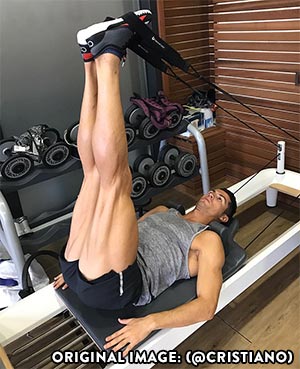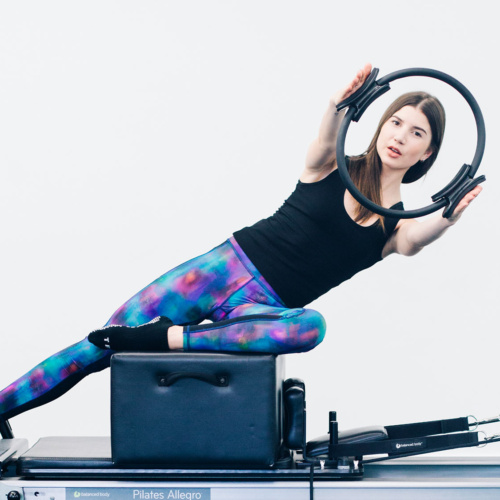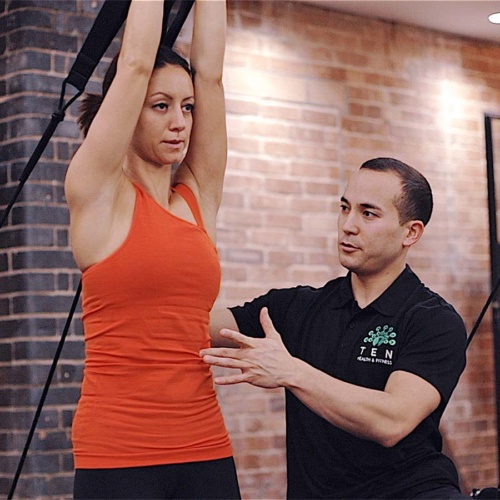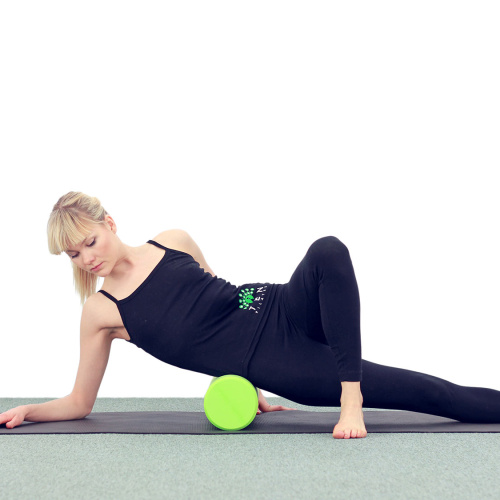Like elite and pro sportsmen and women from all disciplines, footballers are increasingly embracing Pilates as part of their training programmes – as this reasonably well-known gentleman is demonstrating.
The performance enhancing and injury prevention benefits of Pilates are as every bit as relevant to amateurs and weekend warriors as they are to premier league superstars – if not more so. With that in mind we offer our 10 benefits of Pilates for footballers.

1. Rebalance the body
As with most sports-specific training programmes, footballers will use (or more accurately, overuse) the same muscle groups through their training routine. Because Pilates is such an effective full-body workout, it’s a great way to re-establish the body’s equilibrium, reducing the stress from over-stressed muscles and increasing the activity in muscles that are underused in training.
2. More power even when you’re off balance
Increased core stability is one of the key benefits of all Pilates programmes. If you’re passing or shooting under pressure, the extra stability through the hips and core that Pilates develops can allow you to generate power even when you’re off-balance.
3. Improved upper body and core strength
Though upper body strength is important for fending off opposition players, football training generally focuses on the lower body. Similarly, a strong core (again, often overlooked in sport specific training) helps you stay on the ball, ride tackles, and generate more power even when your opponent’s got a handful of your shirt.
4. Flexibility
Footballers are not known for their flexibility. It’s a common trait in sports that involve short intervals of explosive speed and/or power that muscles shorten, lose flexibility and stiffen up – limiting their power and effectiveness, and increasing injury risk. By working on both length and strength of muscles, Pilates is a great way to offset this.
5. Staying unpredictatble
If you favour a particular foot to strike the ball, this can create dominance in one side of the body. Not only can this lead to increased injury risk, but it also makes you more predictable as a player. With its focus on unilateral (one-sided) movements Pilates is a great way to even out any imbalances, generate more power through your weaker foot and keep your opponents guessing.
6. Football isn’t just about straight lines – so don’t train in one
Football involves a huge range of movements – amongst them abrupt starts and stops, twists and turns, changes in direction, jumps, stretches, and slides. Because Pilates works the body through all three planes and axes of movement through most of its exercises, the benefits are all functionally transferable into your on-pitch movement. (In comparison, traditional gym training generally involves movements in a single direction – think squats, presses or the exercise bike.)
7. Improved joint stability
The multi-directional nature of the sport means that players’ bodies need to safely absorb impact through a range of motions and directions. By improving the body’s movement patterns and strengthening the supporting muscles around the joints (think knees, ankles and hips) Pilates can keep you injury free, especially during the latter stages of a game when fatigue has set in, muscles are tiring, technique suffers and there’s more risk to joints and ligaments.
8. Glutes to the max.
Anybody who does Pilates will tell you what a great glute workout it is. And these bad boys are not just for sitting on. Your glute muscles are essential for reducing groin, knee and hamstring injuries as well as generating power while running or jumping, stability while standing on one leg and skilling the ball past your appointment a la Messi,
9. Active recovery matters
For anyone whose programme involves frequent high velocity/intensity training, it’s important to build some active recovery into your workouts. Lower impact, lower intensity workouts like Pilates enable more emphasis on technique, form and posture, help the body recover faster and reduce injury risk.
10. You can’t play if you’re injured.
Football can throw all sorts of nasty injuries at you, from sprained ankles to torn cruciate ligaments. Pilates is renowned as one of the great prehabilitative (preventative exercise) workouts. So it’s a great way to stay injury-free during a long season. And it’s also a great way to improve the speed and quality of recovery from any injuries you can’t avoid.





